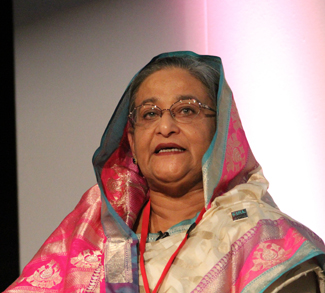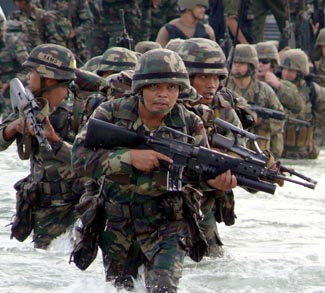Since launching an anti-terror crackdown in response to a high-profile attack on a popular Dhaka café in July 2016, Bangladesh has not experienced another major attack. Yet 16 months on from the siege at the Holey Artisan Bakery – during which terrorists massacred 20 civilians with sharp weapons before Bangladeshi commandos stormed the building – fears over violent extremism in the South Asia nation remain ever-present.
Despite thousands of arrests and the deaths of top militant leaders at the hands of state security forces, there are still signs of heightened political tensions and renewed militant activity just below the surface. These signs are raising new concerns over the potential for separatist violence and a new wave of attacks in a country that until recently had very little experience dealing with terrorism.
Whilst Bangladesh’s improved law enforcement capabilities have almost certainly prevented further bloodshed over the past year, the government of Prime Minister Sheikh Hasina has faced criticism over its somewhat contradictory approach to confronting terrorism. At the same time as pledging to tackle Islamist militants head-on, the government has been accused of facilitating an environment in which extremist ideology can flourish.
This report explores whether Bangladesh’s counter-terrorism crackdown will ultimately prove successful in keeping a lid on militant activity, and asks whether the government in Dhaka is doing enough to combat the radical ideology fueling the violence.
The issue of terrorism in Bangladesh first caught the world’s attention in 2015, when a wave of small-scale but deadly attacks targeted secular bloggers, university professors, foreign citizens, and members of religious minority groups. In all, more than 20 people were shot dead or hacked to death by Islamist militants in a two-year period, with the attacks often taking place in broad daylight.
The level of violence was unprecedented in what is usually considered one of the most secular and tolerant Muslim-majority countries, especially in comparison to regional neighbors Afghanistan and Pakistan, which have long been blighted by sectarianism, religious intolerance, and endemic suicide bombings. The attacks made global headlines and hit the tourism industry and Bangladeshi economy hard.




